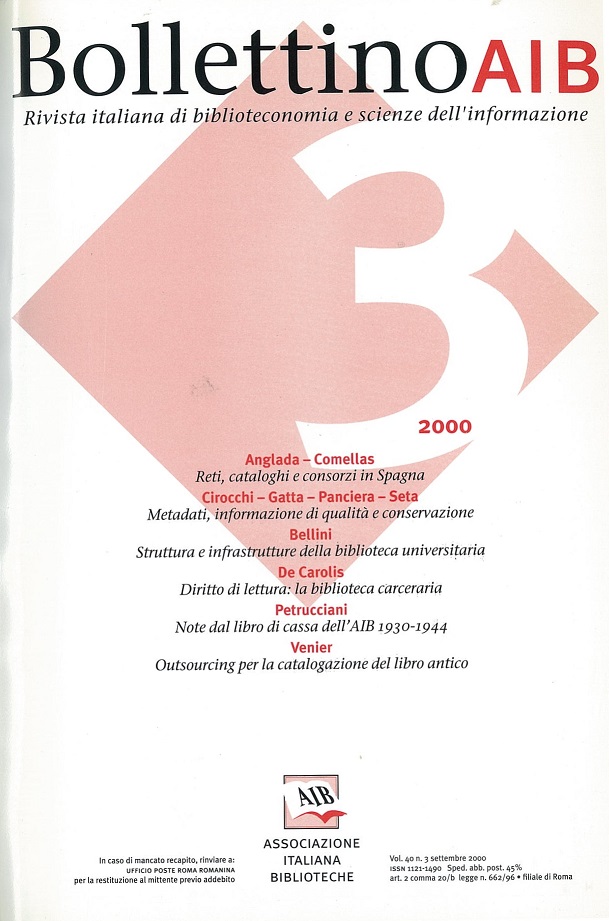The right to read: the experience of prison libraries
Main Article Content
Abstract
The law no. 354 of July 26th 1975 states that Italian penal institutions should have a library providing books and journals to prisoners. For the management of the service, the rules foresee the participation of representatives of the prisoners and the collaboration of the educators, without any further indications on financing, staff, opening time and facilities; «access to the publications contained in the library, with full freedom of choice of reading» is encouraged within the area of cultural and professional education. This is as far as the law goes: vague and sketchy but an important starting point. In fact the Italian penitentiary situation has only rare examples of library services; there is, however, an abundance of precarious services, in limited premises, with jumbles of books that have arrived mostly as gifts, lack of organic and functional catalogues, difficulty of access to the collections.
The awareness of a library as an essential information service for the citizens is quite a recent acquisition within Italy and the accumulated delay has caused even stronger repercussions for those who reside in penal institutions.
In the international professional sphere, recent years have seen a multiplication of interventions, discussions and publications on the subject of prison libraries, with particular interest for the drafting of guidelines and quality standards.
In fact there are often cases of libraries that are characterized by their isolation, both with regard to prison life and to the outside world. An antidote to this danger is the presence of qualified librarians and collaboration with the institutional authorities of the penitentiary, the professional community and the local library services. The recognition of the strategic role that a local public library can exercise in this area is the path chosen with success in other European countries. It is not by chance that the most successful experiences in Italy derive from the initiative of a local public institution - municipality or province - that seeks and finds the collaboration of bodies of a regional and/or national character.
The Italian situation does not present a particularly comforting picture, although studded with some particularly vivacious and interesting initiatives. It is not by chance that the most significant experiences that we find in Italy are located in cities characterized by a strong library tradition and by a marked tendency towards public service, such as Turin, Milan and Ravenna.
The Istituto di biblioteconomia e bibliografia of the State University of Milan has carried out a census of the libraries present in Italian prisons. Giorgio Montecchi, of the University of Milan, has proposed the idea of forming an association of prison libraries in order to arrange a common action and lay the bases for improving the library services offered to prison inmates.
Article Details

This work is licensed under a Creative Commons Attribution-ShareAlike 4.0 International License.
